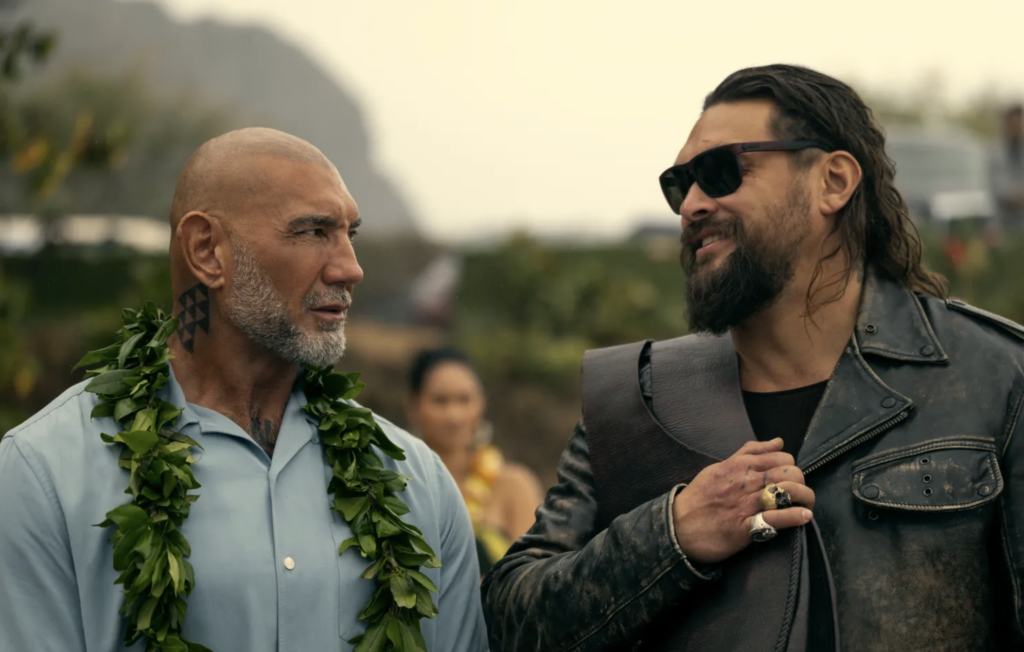Spinal Tap II: The End Continues is the rare legacy comedy sequel that is subtle, organic, and worth the wait
Legacy horror film sequels, which have come back in droves since the pandemic, are the easiest genre to point to right now if you want to explain how goddamned difficult it is for Hollywood to recreate lightning in a bottle. Aside from Final Destination: Bloodlines, the 2020s have proven to be a dumping ground for the only thing worse than sequelitis—returning to the same old well and bringing along characters that have no reason to still be dragged, kicking and screaming, back to their old franchise. Pairing that legacy sequel problem with the long, languid history of mainstream comedy sequels—from your dozen entries in the American Pie series to Blues Brothers 2000—it’s understandable why audiences would be hesitant to expect much from a 2025 return to 1984’s This is Spinal Tap. What possible reason could there be, narratively or artistically or just for shits and giggles, to pull a 40+ year old story into a part two? And, in this case, technically part three, since The Return of Spinal Tap was released in 1992 as a direct-to-video feature.
As a fan who considers the original film—and band—foundational to the core of rock’n’roll, as well as an ur-text for the rockumentary genre, it brings me great pleasure to announce that Spinal Tap II: The End Continues is solid. Solid as the rock of Stonehenge itself. And it returns big dividends by keeping the production shockingly small.
In a leap forward to the present, which never acknowledges the other sequel, the metal band Spinal Tap’s remaining members have not spoken in decades, over some disagreement that no one seems keen to acknowledge, or perhaps even remember. For a band already showing their age back in 1984, the frontmen are now dinosaurs, but have abandoned the touring rock lifestyle for mostly non-musical careers. Due to a lingering contractual obligation, they’re required to reform and play exactly one final gig. New Orleans, of all places, winds up as both the performance venue and, leading up to the show, a week of rehearsal in-studio to prep for retaking the stage. The director of the original flick, Martin Di Bergi, is similarly closing a chapter in his career by returning to film the grand finale—or possible flame out.
The cast, including director Rob Reiner, is clearly having a good time with the English accents again. There’s a nostalgia for the first movie on full display; it’s even embedded in the character arc of Michael McKean’s David St. Hubbins. The movie doesn’t dig too deeply into “the business has changed” when mining for jokes, which was a great decision. Instead, Reiner and McKean, along with bandmates Harry Shearer and Christopher Guest, lean on the reason all these decades-later “lega-sequels” exist in the first place: we loved these guys and we’ve always wanted to see more.
I won’t discuss individual jokes or beats in the review, because I have no interest in spoiling the fun, but big picture? Let me just assuage you of the fear that infected me from the film’s announcement post-pandemic: No, this is not that kind of pandemic film. I mean, what major musician in 2025 wouldn’t want to have an appearance in a new Spinal Tap film, considering the pedigree of the original? It would’ve been very easy to stock the runtime with cameo after cameo, or using the documentary setup, either interviewing musicians in other locations, or doing the very boring thing of having them Zoom in. This is overwhelmingly not that film, minus a single segment with FaceTime used for drummer auditions. The few cameos deployed are not only used for extended parts of the story itself, but cleverly integrated into the actual music-making side of the film.
Instead of cranking it to 11 or throwing a big budget and big names at the endeavor, Reiner gets a few of our greatest living improv comedians back into close quarters together and just allows them to do what they do. This is, shockingly, an intimate film that has no fear in capturing the minutiae, the genuine awkwardness, and a shaky chemistry between three guys mostly shooting the shit. There are no huge blow-ups between characters, no forced drama, and at its peak of performative discord, it is closer to the passive-aggressive studio shoots in Peter Jackson’s The Beatles: Get Back.
A few new songs sprinkle alongside classic tracks, and some delightful spectacle falls in line along the final show, but this new Tap-doc leans harder on the smaller, minor throwback tracks from the original film than on re-inventing “Big Bottoms.” It’s a quieter experience that has aged alongside our leads, and the film is so… honest in that way? The confidence to both let a few masters meddle in each others’ space, while simultaneously keeping the runtime miraculously under an hour-and-a-half, yields a final product that is whistful without being saccarine, joyful without a parade, and a true spiritual successor that refuses to grasp for a former glory or reference jokes that everyone already knows—instead finding comfort in earning its existence as something new entirely.
Spinal Tap II: The End Continues could have easily drowned in excess, and it would have certainly been on brand to do so, albeit less rewarding. A series of unexpected choices and palm-muted measures gives us a slice of life that’s far funnier, more memorable, and worth its own place in a slightly adjacent pantheon. Bravo.






